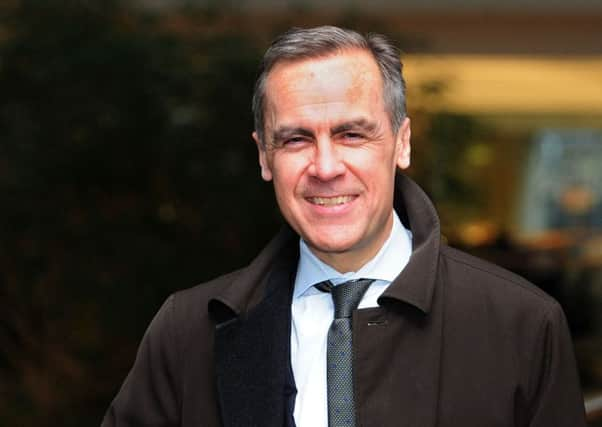Martin Flanagan: Mark Carney extends tenure for Brexit
This article contains affiliate links. We may earn a small commission on items purchased through this article, but that does not affect our editorial judgement.


If that displeases the more rabid Brexiteers, so be it.
They had wanted Carney to leave early, and they have partly got their way because the Canadian has for “personal reasons” decided not to extend his tenure to the full possible eight years that would have taken him to June 2021.
As far as an elegant solution is possible in the febrile mood surrounding Brexit, this is probably it. But it is still difficult to understand the anti-Carney ferocity. It looked petty and tunnel-visioned.
Advertisement
Hide AdAdvertisement
Hide AdThe Leave camp felt the governor overstepped the mark in warning ahead of June’s referendum of short to medium term economic volatility if the UK quit the EU. It believed that the referendum was a sovereign decision of the people, and that he should to all intents have stayed out of it.
But it would be bizarre if a decision of such material economic importance should have had Carney in purdah. His duty was to warn of the challenges as well as opportunities of Brexit.
Similarly, in the Scottish independence referendum when the Bank governor ruffled feathers by saying monetary union between an independent Scotland and England and Wales was incompatible with sovereignty. What, the near-implosion of the euro did not make that a reasonable conclusion?
There were other issues at stake in the EU vote, such as control of Britain’s borders and acceptance of the paramountcy of the EU judiciary. But the disputed economic consequences of Britain opting out was, and is, fundamental as well.
The idea that George Osborne hired Carney as governor only to say “please shut up” when seminal economic developments are in prospect was deluded.
Carney has not done everything right in his stewardship, and his policy of “guidance” on UK interest rates had patchy success. But his tenure has been far from cackhanded and amid the central banker hospital pass that was Brexit he just did his job. He has also behaved with a decorum his shriller critics lack.
